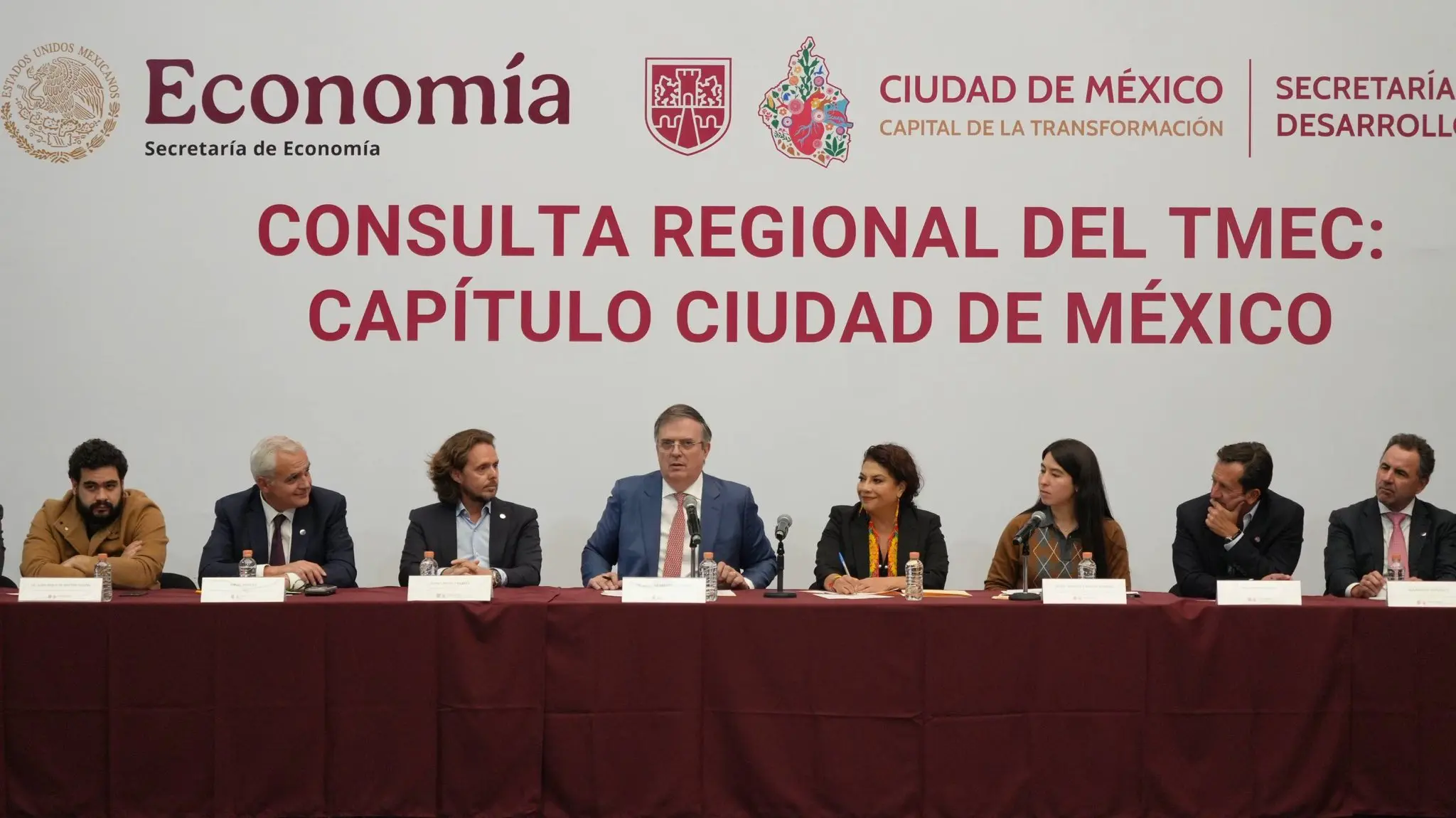
Mexico’s Minister of Economy Marcelo Ebrard said that the upcoming review of the United States-Mexico-Canada Agreement (USMCA) will open a new stage of economic growth for the country, with major investment opportunities in strategic and high-tech sectors.
“A period of growth is coming, with a huge opportunity for Mexico. We just have to seize it—because it won’t happen on its own,” the official said during the Regional USMCA Consultation: Mexico City Chapter, held on Tuesday.
Ebrard emphasized that the 2026 trade agreement review represents a key opportunity to strengthen North American competitiveness and establish Mexico as one of the hemisphere’s main industrial and technological hubs.
The Minister noted that Mexico enjoys increasing international recognition for its economic strength and industrial potential.
“Today, foreign investment is growing faster than domestic investment. It seems we have two different perceptions of things. Foreign direct investment has increased—not just reinvestment, but new investment as well. So, that shows the country’s and the city’s potential—many things are coming,” he said.
Ebrard added that this international confidence is also reflected in Mexico’s selection as host of the 2028 APEC Summit, unanimously approved, which he said confirms the nation’s role as an economic bridge between Asia and the Americas.
The official pointed out that the global interest in strengthening production within North America opens new opportunities in at least 70 productive sectors, with particular potential in the pharmaceutical, semiconductor, and artificial intelligence industries.
“The pharmaceutical sector is an example of the scale of opportunity: the United States imports 237 billion dollars’ worth of medicines, while Mexico exports only 1.6 billion. There is no reason why that shouldn’t grow,” he emphasized.
On semiconductors, Ebrard noted that Mexico can take advantage of its geographic proximity to the United States and its advanced manufacturing network to integrate more deeply into global value chains.
He also acknowledged that artificial intelligence has become one of the most prominent topics in recent international meetings, representing both a challenge and an opportunity for the coming years.
“The opportunity is there, but we have to work to seize it,” he warned.
To achieve this, Ebrard proposed accelerating English-language education in Mexican schools and updating academic programs to meet new technological demands.
“Universities and technical training centers must align their programs with the sectors that will drive the country’s industrial development,” he stressed.
Ebrard also proposed adopting a ‘maximum effort in minimum time’ law, inspired by Asian development models that have achieved progress through education, digital connectivity, and sustained investment.
The Minister emphasized that with the upcoming review of the USMCA, the agreement should not only be renewed, but improved: “The review of the agreement should serve to make it better, not to start from scratch.
Mexico is ready to grow, but the challenge is to do so intelligently, with planning and with a vision for the future,” he concluded.
Related: Mexico and the United States Reach 90% Progress in Tariff Negotiations: Ebrard